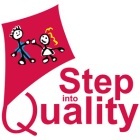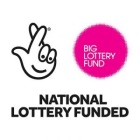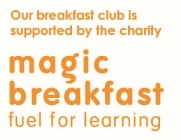Our Pupils’ perspective
Through oracy, we learn the ability to articulate ideas, develop understanding and how to engage with others through spoken language.
Subject Leader
Our well articulated Oracy Lead is Mrs Patel. She hasn’t always been as confident as she is now, therefore she understands how difficult it can be for children to be expressive using words, and she has given the staff powerful strategies to use in all of their lessons. Her fun and active approach to rolling out effective oracy strategies in school have made our children more confident with their speaking and listening skills. We are currently working alongside Voice 21, who are guiding us in our journey to become oracy champions.
Subject Intent
At St Luke and St Philips, our oracy curriculum is designed to develop children’s love of discussion and prepare our learners for life as successful, valuable and socially responsible citizens. We believe that through oracy, minds will be opened and diversity embraced, supporting our school vision, as children develop respect for different beliefs or ideas. Excellence is also encouraged and talent is nurtured throughout with children participating in presentations, assemblies, performances and local public speaking competitions.
At school we recognise that without effective communication, little achievement can be made. We know that we have a duty to ensure that spoken language is a priority and we recognise that this is part of the essential knowledge that is needed in society.
Our aim is to enable the pupils to improve their levels of oracy so that all pupils are able to communicate effectively and confidently in front of any type of audience. These skills are being encouraged in every area of our curriculum as good communication skills can enhance every type of learning. The pupils are encouraged to explore ideas through talk; challenge each other’s opinions and develop their own reasoned arguments, as well as talking in full sentences with a clear and confident voice.
Many of our pupils start early school life without the oracy skills relevant for their age. We strive to develop spoken language skills through the taught curriculum, the hidden curriculum, playtimes and lunchtimes, extra-curricular activities and the whole ethos of the school.
Respectful and productive relationships between all who form part of the school community are crucial aspects of this ethos. As a staff, we therefore foster good communication amongst ourselves and with our pupils, their parents and carers, and with the wider community. We place a high priority on supporting the development of good speaking and listening skills amongst our pupils.
Our oracy curriculum will enable children to:
-
speak with confidence, clarity and fluency;
-
recognise the value of listening;
-
be confident in the value of their own opinions and to be able to express them to others;
-
adapt their use of language for a range of different purposes and audiences, including using Standard English;
-
sustain a logical argument and respond to others appropriately;
-
concentrate, interpret and respond appropriately to a wide range of listening experiences;
-
be open-minded, to value the contribution of others and to take account of their views;
-
appreciate the diversity of languages, dialects and accents in the school and value the experience and contributions of children with a wide variety of linguistic backgrounds;
-
share their learning in an engaging, informative way through formal presentations.
Useful Website Links
https://www.britishcouncil.org/sites/default/files/its_good_to_talk.pdf






.png)
.png)

.jpg)